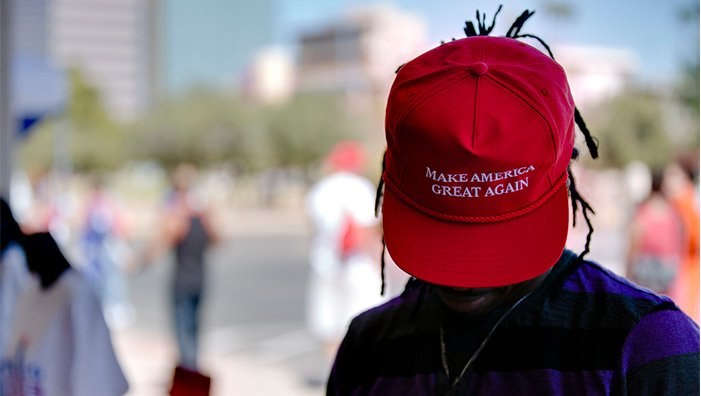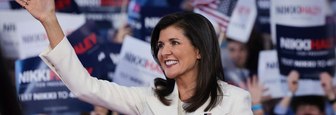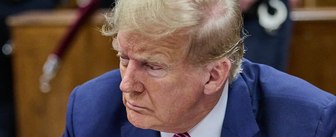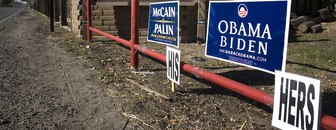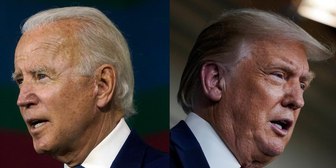Only 25% of Americans think the US is headed in the right direction
Over the last two weeks, as the headlines focused on protests in Charlottesville and the possibility of war with North Korea, public dismay about the state of the country grew. But even though fears of war have lessened in the last week, judgments about the healthy state of the country continued to drop – and nowhere more so than among members of the President’s own party.
In this week’s Economist/YouGov Poll, just 25% think the country is heading in the right direction. While this is the lowest overall percentage saying this all year, the change in the last two weeks comes mostly from Republicans. Two weeks ago, as Congress left Capitol Hill after failing to keep its promise to repeal and replace Obamacare, more than twice as many Republicans thought said the country was heading in the right direction than believed it was off on the wrong track. Now the percentages are about even.
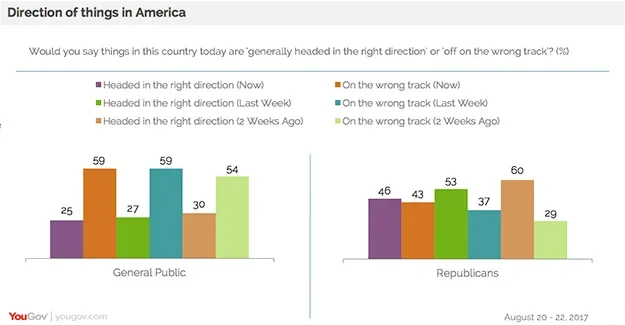
North Korea, whose threats boosted American worries about a possible war, is still seen as an enemy, but the share of the public now saying they believe it is likely the President will get the U.S. into a war has dropped eight points from last week’s high of 62%. Much of that drop has come from Republicans. Last week 47% of Republicans believed the President might get the country into a war. Now only 32% say he will.
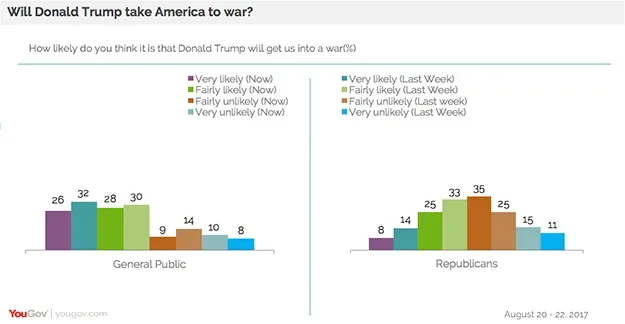
Fear of a terrorist attack is no greater now than it was at the start of the summer, despite the latest violence in Spain. Just over one in four people give the odds of some sort of terrorist attack on U.S. soil greater than 50-50 odds, no different from a few months ago. And the United States is seen as safer than Europe, 59% to 6%.
The recent economic news, with positive job gains, should have brought more positive assessments. But perhaps the trouble in Charlottesville, with its renewed focus on racial issues, has mattered more in how Americans see the country. News coverage of race now gets seen with a more partisan eye. In 1995, during the murder trial of O.J. Simpson, most Americans believed that the media generally gave black Americans fair treatment, but more said that the media was biased against blacks than biased in their favor. That’s no longer true. Whites are more than twice as likely to see a media biased in favor of blacks than against blacks. Those who voted for Donald Trump last November are especially likely to perceive a bias.
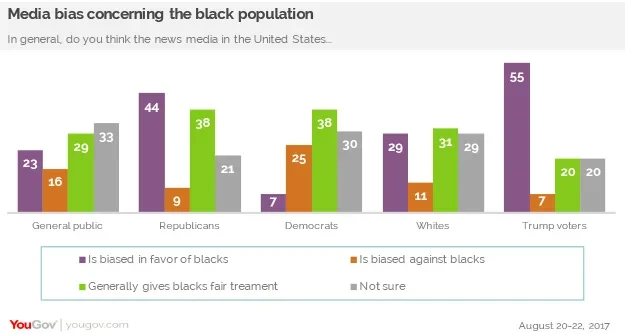
There is also a partisan perception of media bias against Trump himself. More than four in ten believe the national press treats the President unfairly – and that percentage jumps to 79% among Republicans and to 87% among Trump voters.
The President is viewed as having a different attitude about blacks and whites. Twice as many Americans believe he cares “a great deal” about the needs and problems of white people as he does about the needs and problems of blacks. And this difference is true among whites as well as blacks, among Republicans as well as Democrats. 52% of Republicans say he cares a great deal about whites, while just 40% think he cares a great deal about blacks.
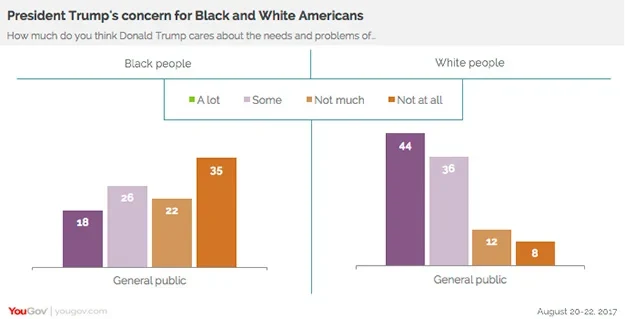
Majorities of those who voted for the President last year think he cares a great deal about both. As for the President’s long term political future, half the public and nearly half of Republicans think Donald Trump will be a one-term president. Only about a third believe it is likely he will be re-elected in 2020.
See the full results from this week's the Economist/YouGov poll
